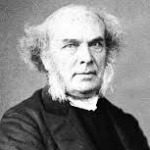Quotes about God-Immutability
The doctrine of God’s immutability is of the highest significance for religion. The contrast between being and becoming marks the difference between the Creator and the creature. Every creature is continually becoming. It is changeable, constantly striving, seeks rest and satisfaction, and finds this rest in God, in Him alone, for only He is pure being and not becoming. Hence, in Scripture God is often called the Rock.
[Immutability] means that, being perfect, God cannot and does not change. In order to change, a moral being must change in either of two ways. Either he must change for the better or he must change for the worse. God cannot get better, because that would mean that He was less than perfect earlier, in which case He would not have been God. But God cannot get worse either, because in that case He would become imperfect, which He cannot be. God is and must remain perfect in all His attributes.
Our changing years affect not Him with Whom one day is as a thousand years and a thousand years as one day: Who is the same yesterday, and to-day, and forever. In a changing world, let us rejoice in this unchangeableness.
God’s immutability is His perfect unchangeability in His essence, character, purpose and promises.
God the Father by John MacArthur and Richard Mayhue taken from Biblical Doctrine by John MacArthur and Richard Mayhue, copyright 2017, Crossway Books, a division of Good News Publishers, Wheaton Illinois 60187, www.crosswaybooks.org. Page 169.
1. He is eternally the same (Ps. 102:25—27). 2. He is the first and the last (Isa. 41:4; 43:10; 44:6; 48:12) 3. He is what He is (Ex. 3:14). 4. He is incorruptible, alone having immortality, always remaining the same (Rom. 1:23; 1 Tim. 1:17; 6:15-16; Heb. 1:11-12). 5. His thought, purpose, will, and decrees are unchangeable: a. He executes His threats and promises (Num. 23:19; 1 Sam. 15:29). b. He does not repent of His gifts and calling (Rom. 11:29). c. He does not cast off people with whom He has made a unilateral covenant (Rom. 11:1). d. He glorifies those whom He foreknows (Rom. 8:29—30). e. He perfects what He starts (Ps. 138:8; Phil. 1:6). f. His faithfulness never lessens (Lam. 3:22—23). 6. He does not change (Mal. 3:6; James 1:17).
God the Father by John MacArthur and Richard Mayhue taken from Biblical Doctrine by John MacArthur and Richard Mayhue, copyright 2017, Crossway Books, a division of Good News Publishers, Wheaton Illinois 60187, www.crosswaybooks.org. Page 169.
Immutability does not mean that God is static or inert, nor does it mean that He does not act distinctly in time or possess true affections. God is impassible—not in the sense that he is devoid of true feeling or has no affections but in the sense that His emotions are active and deliberate expressions of His holy dispositions, not (as is often the case with human emotions) involuntary passions by which He is driven.
God the Father by John MacArthur and Richard Mayhue taken from Biblical Doctrine by John MacArthur and Richard Mayhue, copyright 2017, Crossway Books, a division of Good News Publishers, Wheaton Illinois 60187, www.crosswaybooks.org.
For example, the language of God “repenting” or “changing” in any way is anthropopathic language—figurative expressions that communicate to man on His level of understanding about changes of dispositions or actions. Thus, God’s perceived “changes” are always in the context of His eternal omniscience and will, so they are never because God is surprised and has to adjust. They are done in harmony with His truth and faithfulness (see 1 Sam. 15:29). All His acts that might be perceived as changes are eternally foreknown and predetermined.
God the Father by John MacArthur and Richard Mayhue taken from Biblical Doctrine by John MacArthur and Richard Mayhue, copyright 2017, Crossway Books, a division of Good News Publishers, Wheaton Illinois 60187, www.crosswaybooks.org. Page 170.
He cannot change for the better, for He is already perfect; and, being perfect, He cannot change for the worse.
The Attributes of God, Baker, p. 37.
Get this book!
However unstable I may be, however fickle my friends may prove, God changes not. If He varied as we do, if He willed one thing today and another tomorrow, if He were controlled by caprice, who could confide in Him? But, all praise to His glorious name, He is ever the same. His purpose is fixed, His will is stable, His word is sure.
One of two things causes a man to change his mind and reverse his plans: one is foresight to anticipate everything, or lack of foresight to execute them. But as God is both omniscient and omnipotent there is never any need for Him to reverse His decrees.
God’s plan never changes because He never changes and because perfection admits to no degrees and cannot be improved upon.
God writes with a pen that never blots, speaks with a tongue that never slips, acts with a hand that never fails.
It is well for us that, amidst all the variableness of life, there is One whom change cannot affect; One whose heart can never alter, and on whose brow mutability can make no furrows.
A changeable God would be a terror to the righteous, they would have no sure anchorage, and amid a changing world they would be driven to and fro in perpetual fear of shipwreck… Our heart leaps for joy as we bow before One who has never broken His word or changed His purpose.
God altereth not His plans; why should He? He is Almighty, and therefore can perform His pleasure. Why should He? He is the All-wise, and therefore cannot have planned wrongly. Why should He? He is the everlasting God, and therefore cannot die before His plan is accomplished. Why should He change? Ye worthless atoms of earth, ephemera of a day, ye creeping insects upon this bay-leaf of existence, ye may change your plans, but He shall never, never change His.
Consider what you owe to His immutability. Though you have changed a thousand times, He has not changed once.






